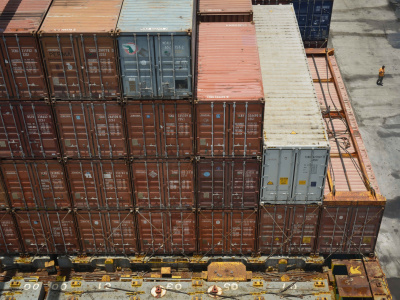
EU Trust Funds - Shaping more comprehensive external action?
EU Trust Funds (EUTFs) are a new instrument in EU external action. Their creation responds to the EU’s will to deliver more flexible, comprehensive and effective joint EU support, and increase the EU’s global visibility and political weight in particularly challenging contexts. The EU counts three EUTFs, which are very different in nature, but which raise a number of generic issues relevant to this new EU instrument: 1. The Bêkou Trust Fund for the Central African Republic - July 2014 2. The Regional Trust Fund for Syria (Madad Fund) - December 2014 3. The EU Emergency Trust Fund for Africa (“the Africa Trust Fund”) - November 2015 This Briefing Note aims to facilitate a better understanding of how EUTFs are created, how they operate and what are the specificities of the three existing Funds. It will then explore the key political and operational challenges that result from the creation of EUTFs, and discuss the implications of EUTFs for the wider functioning of EU external action in complex and fragile environments, before concluding.
EU Trust Funds can provide opportunities for the EU and its Member States to deliver more flexible, comprehensive and effective joint support in response to emergencies, fragility and its thematic priorities. As such, they can help increase the EU’s global visibility and allow it to speak with one voice in both a political and operational manner in very different contexts and regions. The three Funds set up to date (Bêkou, Madad and the Africa Trust Fund) differ substantially in their scope and volumes of funding. Positive experiences in the initial implementation of Bêkou cannot be taken for granted. The success of the Trust Funds depends substantially on the willingness of EU Member States’ to contribute to an instrument that allows the EC to exercise more weight in external action. Political pressures to react and show quick results within a short space of time entails the risk that valuable lessons of international cooperation are forgotten. In particular, for the new and very broad Africa Trust Fund, guidance is needed to ensure decisions are based on solid analysis, and are aligned with existing regional and country strategies. This safeguards ownership, ensures complementarity and balances long-term and short-term objectives.
Photo courtesy of Paul Keller via Flickr. In addition to structural support by ECDPM’s institutional partners The Netherlands, Belgium, Finland, Ireland, Luxembourg, Portugal, Sweden, Switzerland, and Austria, this publication also benefits from funding from the Department of International Development (DFID), United Kingdom.
See our press release 'From humanitarian aid to development support through an innovative approach in Central African Republic'.
Key messages
EU Trust Funds can provide opportunities for the EU and its Member States to deliver more flexible, comprehensive and effective joint support in response to emergencies, fragility and its thematic priorities. As such, they can help increase the EU’s global visibility and allow it to speak with one voice in both a political and operational manner in very different contexts and regions. The three Funds set up to date (Bêkou, Madad and the Africa Trust Fund) differ substantially in their scope and volumes of funding. Positive experiences in the initial implementation of Bêkou cannot be taken for granted. The success of the Trust Funds depends substantially on the willingness of EU Member States’ to contribute to an instrument that allows the EC to exercise more weight in external action. Political pressures to react and show quick results within a short space of time entails the risk that valuable lessons of international cooperation are forgotten. In particular, for the new and very broad Africa Trust Fund, guidance is needed to ensure decisions are based on solid analysis, and are aligned with existing regional and country strategies. This safeguards ownership, ensures complementarity and balances long-term and short-term objectives.
Read Briefing Note 81
Photo courtesy of Paul Keller via Flickr. In addition to structural support by ECDPM’s institutional partners The Netherlands, Belgium, Finland, Ireland, Luxembourg, Portugal, Sweden, Switzerland, and Austria, this publication also benefits from funding from the Department of International Development (DFID), United Kingdom.
Read more
See our press release 'From humanitarian aid to development support through an innovative approach in Central African Republic'.




